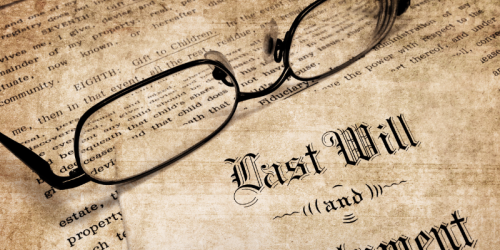Having a Will is important for the following reasons:-
1. Distribution of Assets:
A will allows you to specify how you want your assets to be distributed after your death. Without a will, your assets will be distributed according to state laws, which may not align with your wishes.
2. Guardianship of minor children:
If you have minor children, a will allows you to designate a guardian to care for them in the event of your death. Without a will, the court will decide who will take care of your children.
3. Minimize family disputes:
A clear and legally binding will can help minimize potential disputes among family members over the distribution of your assets.
4. Choose an executor:
A will allows you to appoint an executor to manage the distribution of your assets and handle the administrative tasks of your estate. This can help ensure that your wishes are carried out effectively.
5. Tax planning:
A will can include provisions for tax planning and minimizing the tax burden on your estate, potentially saving your beneficiaries money.
6. Peace of mind:
Having a will in place provides peace of mind, knowing that your wishes will be respected and your loved ones will be taken care of after your death.
Overall, having a will allows you to have control over the distribution of your assets and provides clarity and guidance for your loved ones during a difficult time.
Common questions relating to wills
1. What is a Will?
A will is a legal document that allows you to specify how you want your assets to be distributed after your death and to make other important decisions, such as appointing guardians for minor children.
2. Do I need a lawyer to create a will?
While it is not required to have a lawyer, it is often recommended to ensure that your will is legally valid and accurately reflects your wishes. A lawyer can also provide guidance on complex issues and help avoid potential challenges to the will.
3. What happens if I die without a will?
If you die without a will (intestate), your assets will be distributed according to state laws, which may not align with your wishes. The court will also appoint a guardian for any minor children, and the process can be more complex and time-consuming for your loved ones.
4. Can I change my will?
Yes, you can update or change your will at any time as long as you are of sound mind. It is important to review and update your will regularly, especially after major life events such as marriage, divorce, or the birth of children.
5. Who should I choose as my executor?
Your executor should be someone you trust to carry out your wishes and who is capable of handling the administrative tasks of your estate. It is important to discuss this role with the chosen person before appointing them in your will.
6. Can I disinherit someone in my will?
In many jurisdictions, you can disinherit a family member, but it is important to be aware of specific laws and regulations regarding disinheritance. It is also advisable to clearly state the reasons for disinheritance in your will to minimize potential legal challenges.
7. What is a living will?
A living will, also known as an advance directive, is a legal document that outlines your wishes for medical care and end-of-life treatment if you are unable to communicate your preferences. This document is separate from a traditional will and focuses on healthcare decisions.
If you need a Will drafted or have a requirement to make changes to an existing Will, please feel free to contact the lawyers at Virtual Law Group at (825)-437-8777 or via email: info@virtuallawgroup.ca


